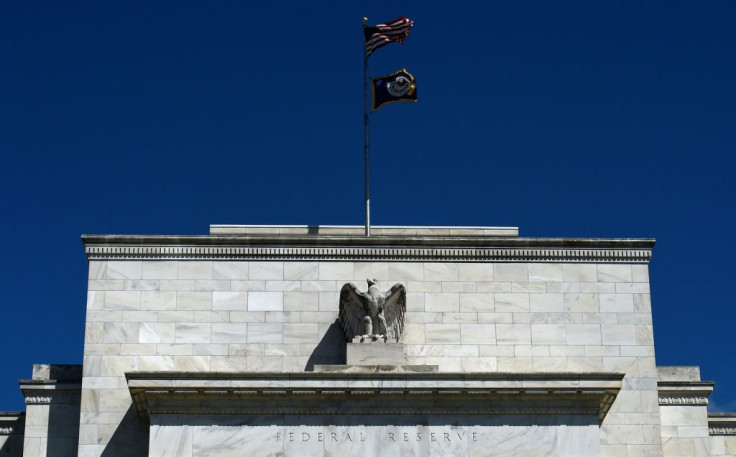Fed Officials Lean Towards Stimulus Pullback As Soon As November
Unless the US economic situation changes dramatically, Federal Reserve officials are leaning towards cutting back on monetary stimulus as soon as November, according to a central bank document released Wednesday.
The date when the Fed will pull back on its monthly bond purchases has been a closely watched topic for months, and the policy-setting Federal Open Market Committee (FOMC) last month indicated the time could come "soon."
The minutes of the FOMC meeting released Wednesday showed officials speaking positively of plans to begin cutting back on the bond purchases as soon as after their next meeting scheduled for November and end it by mid-2022.
Officials indicated that "provided that the economic recovery remained broadly on track, a gradual tapering process that concluded around the middle of next year would likely be appropriate," according to the minutes.
If the FOMC makes the decision at the next meeting then "the process of tapering could commence with the monthly purchase calendars beginning in either mid-November or mid-December."
The central bank currently buys $80 billion in Treasury bonds and $40 billion in mortgage-backed securities each month, a policy implemented early last year as the Covid-19 pandemic caused an unprecedented downturn.
But the policy has increasingly been questioned in recent months amid rising inflation.
The minutes showed participants favored a plan to cut purchases of Treasury bonds by $10 billion a month, and reduce mortgage-backed securities by $5 billion a month.

With inflation spiking through much of this year, central bankers' forecasts released at last month's meeting showed interest rates could be hiked off zero as soon as next year.
According to the minutes Fed officials acknowledged inflation could worsen.
"Most participants saw inflation risks as weighted to the upside because of concerns that supply disruptions and labor shortages might last longer and might have larger or more persistent effects on prices and wages than they currently assumed," the minutes said.
Fed officials also discussed the ongoing impact of Covid-19, noting that the increase in labor force participation expected once vaccines were rolled out "had not yet materialized."
Employers nationwide have struggled to fill open positions, even though the economy remains about five million jobs short of its pre-pandemic total.
"Various participants suggested that a complete return to pre-pandemic conditions was unlikely" since many people had decided to leave the workforce through retirement and other means, the minutes said.
But some Fed officials predicted the labor force would snap back to where it was in February 2020, once the virus receded.
© Copyright AFP 2024. All rights reserved.





















